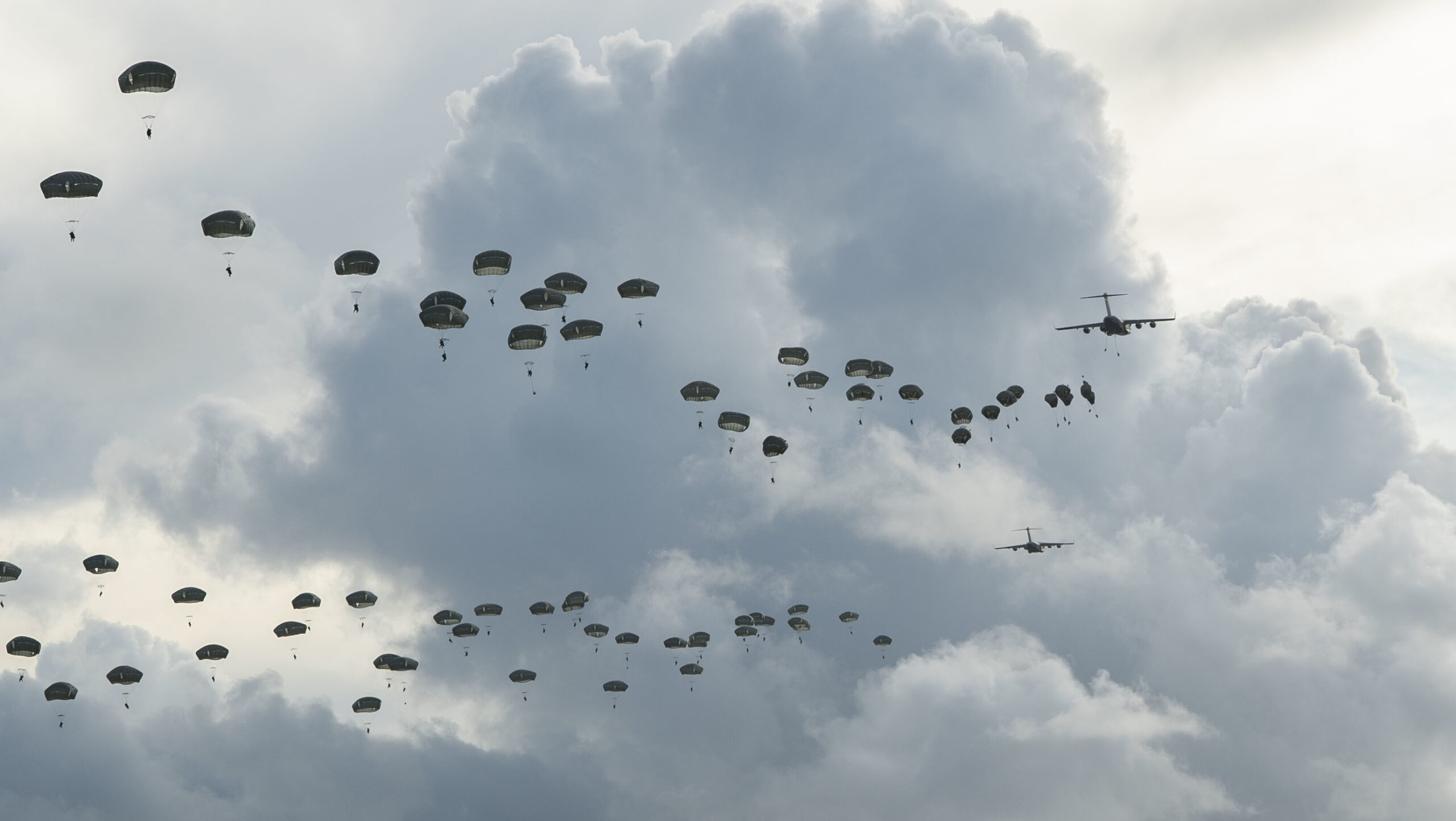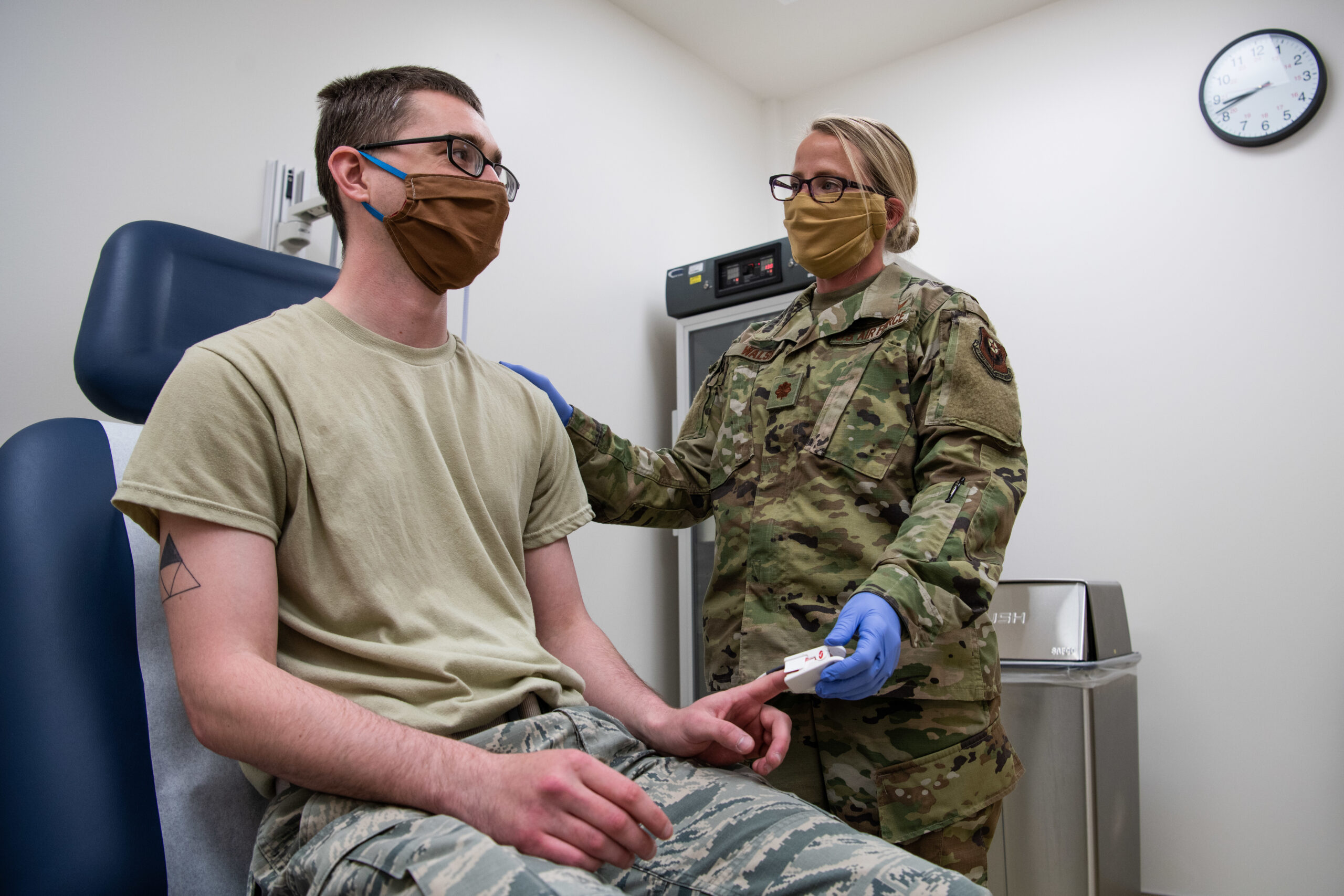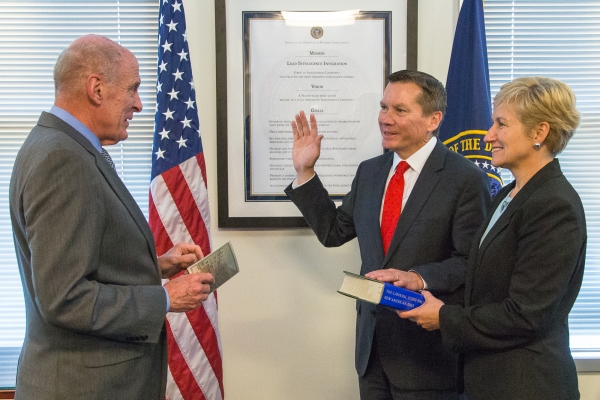While Americans are overwhelmed by the pandemic, Mandy Smithberger details how the Pentagon and its boosters are exploiting the emergency to feather their own nests.

U.S. paratroopers conduct a jump into Andersen Air Force Base, Guam, June 30, 2020. (U.S. Air Force, Richard Ebensberger)
By Mandy Smithberger
TomDispatch.com
 In response to the Covid-19 pandemic, Washington has initiated its largest spending binge in history. In the process, you might assume that the unparalleled spread of the disease would have led to a little rethinking when it came to all the trillions of dollars Congress has given the Pentagon in these years that have in no way made us safer from, or prepared us better to respond to, this predictable threat to American national security. As it happens, though, even if the rest of us remain in danger from the coronavirus, Congress has done a remarkably good job of vaccinating the Department of Defense and the weapons makers that rely on it financially.
In response to the Covid-19 pandemic, Washington has initiated its largest spending binge in history. In the process, you might assume that the unparalleled spread of the disease would have led to a little rethinking when it came to all the trillions of dollars Congress has given the Pentagon in these years that have in no way made us safer from, or prepared us better to respond to, this predictable threat to American national security. As it happens, though, even if the rest of us remain in danger from the coronavirus, Congress has done a remarkably good job of vaccinating the Department of Defense and the weapons makers that rely on it financially.
There is, of course, a striking history here. Washington’s reflexive prioritizing of the interests of defense contractors has meant paying remarkably little attention to, and significantly underfunding, public health. Now, Americans are paying the price. With these health and economic crises playing out before our eyes and the government’s response to it so visibly incompetent and inadequate, you would expect Congress to begin reconsidering its strategic approach to making Americans safer. No such luck, however. Washington continues to operate just as it always has, filling the coffers of the Pentagon as though “national security” were nothing but a matter of war and more war.
Month by month, the cost of wasting so much money on weaponry and other military expenses grows higher, as defense contractor salaries continue to be fattened at taxpayer expense, while public health resources are robbed of financial support. Meanwhile, in Congress, both parties generally continue to defend excessive Pentagon budgets in the midst of a Covid-19-caused economic disaster of the first order. Such a business-as-usual approach means that the giant weapons makers will continue to take funds from agencies far better prepared to take the lead in addressing this crisis.
There are a number of ways the Pentagon’s budget could be reduced to keep Americans safer and better protected against future pandemics. As the Center for International Policy’s Sustainable Defense Task Force has pointed out, the biggest challenges we now confront, globally speaking — including such pandemics — are not, in fact, military in nature. In truth, hundreds of billions of dollars could be cut with remarkable ease from U.S. military spending and Americans would be far safer.
Recently, some members of Congress have started to focus on this very point. Representative Ro Khanna (D-CA), for instance, proposed diverting money from unnecessary intercontinental ballistic missile “modernization” into coronavirus and vaccine research. Senator Bernie Sanders (I-VT) has gone further, suggesting a 10 percent reduction in the Pentagon’s budget, while Representative Barbara Lee (D-CA), the only member of Congress to vote against the post-9/11 war resolution that led to the invasion of Afghanistan, has gone further yet, calling for the cutting of $350 billion from that budget.
But count on one thing: they’ll meet a lot of resistance. There’s no way, in fact, to overstate just how powerfully the congressional committees overseeing such spending are indebted to and under the influence of the defense contractors that profit off the Pentagon budget. As Politico reported years ago (and little’s changed), members of the House Armed Services committee are the top recipients of defense industry campaign contributions. Even the chair of the House Foreign Affairs committee, which should be advocating for the strengthening of American diplomacy, has drawn criticism for the significant backing he receives from the defense industry.
Focusing on Weaponry That Can’t Fight a Virus
Defense contractors have consistently seen such investments pay off. As my colleague at the Project on Government Oversight, Dan Grazier, has pointed out, despite repeated warnings from independent watchdogs and medical professionals, even military healthcare has been significantly underfunded, while both the Pentagon and Congress continue to prioritize buying weapons over taking care of our men and women in uniform. Congress’s watchdog, the Government Accountability Office, warned in February 2018 that the health system of the Department of Defense (DOD) lacked the capacity to handle routine needs, no less the emergencies of wartime. As Pentagon spending has continued to escalate over the past 20 years, military healthcare funding has stayed largely flat.

Maj. Jesse Walsh, a clinical nurse, chats with Airman 1st Class Brandon O’Bryant, at Cannon Air Force Base, N.M., May 6, 2020. (U.S. Air Force, Maxwell Daigle)
Under the circumstances, I doubt you’ll be surprised to learn that Congress has also written additional arms contractor giveaways into its coronavirus relief bills. Though its CARES Act authorized trillions of dollars in spending, ProPublica unearthed a provision in it (nearly identical to one proposed by industry groups) that allows defense contractors to bill the government for a range of costs meant to keep them in a “ready” state. The head of acquisition for the Pentagon, Ellen Lord, estimated (modestly indeed) that the provision would cost taxpayers in the low “double-digit billions.” Additional language offered in the House’s next relief bill, likely to survive whatever the Senate finally passes, would increase such profiteering further by including fees that such companies claim are related to the present crisis, including for executive compensation, marketing, and sales.
In such a context, it was hardly surprising that, during a recent hearing at the House Armed Services Committee on how the DOD was responding to the Covid-19 crisis, the focus remained largely on ways that the global epidemic might diminish arms industry profits. Representatives Joe Courtney (D-CT) and Mac Thornberry (R-TX) both argued that the Pentagon would need yet more money to cover the costs of any number of charges that defense contractors claim are related to the pandemic.

Joe Courtney, member of House Armed Services Committee, in center in business suit, for Aug. 5, 2010, groundbreaking at Bradley Air National Guard Base, East Granby, Conn. (Air Force, Erin McNamara)
Most ludicrous is the idea that an agency slated to receive significantly more than $700 billion in 2020 can’t afford to lose a few billion dollars to the actual health of Americans. Of course, the Pentagon remained strategically mum earlier this year when, in an arguably unconstitutional manner, the White House diverted $7.2 billion from its funds to the building of the president’s “great, great wall” on our southern border. In fact, General Mark Milley, chairman of the Joint Chiefs of Staff, even admitted that it wasn’t exactly a major blow for the government agency with the largest discretionary budget:
“It was not a significant, immediate, strategic, negative impact to the overall defense of the United States of America,” he assured Congress. “It’s half of one percent of the overall budget, so I can’t in good conscience say that it’s significant, immediate, or the sky is falling.”
A Chicken Little Congress, however, doesn’t consider taking more funds from the Pentagon budget to shore up the Centers for Disease Control and Prevention (CDC) anywhere near as crucial as, for example, approving the Pacific Deterrence Initiative, a slush fund that will be part of this country’s new Cold War with China — starting with a modest $1.4 billion in seed money, while the homework is done to justify another $5.5 billion next year. Similarly, even in such an economically disastrous moment, who could resist buying yet more of Lockheed Martin’s eternally troubled and staggeringly expensive F-35 Joint Strike Fighters than the Pentagon requested? Comparable support exists, even among senators unwilling to fork over any more dollars to desperate out-of-work Americans, for the president’s Space Force, that new service now in the process of creating a separate set of rules for itself that should allow it free rein over future spending. That, of course, reveals its real mission: making it easier for contractors to profit off the taxpayer.

An artist’s concept of a Space Laser Satellite Defense System.
If anything, the main congressional criticism of the Pentagon is that it’s been too slow to push money out the door. And yet, in an institution that has never been successfully audited, there are red flags galore, as a recent Government Accountability Office assessment of major weapons programs suggests. The costs of such new weapons systems have cumulatively soared by 54 percent, or $628 billion, from earlier GAO assessments. That, by the way, is almost 90 times this year’s budget request for the CDC.
And that’s just the waste. The same report shows that any number of weapons systems continue to fail in other ways entirely. Of the 42 major programs examined, 35 had inadequate security to prevent cyber attacks. General Dynamics Electric Boat’s $126 billion nuclear submarine program has been plagued by faulty welding for two years. The new Ford class aircraft carrier, built by Huntington Ingalls for $13.2 billion, includes a General Atomics launch system that continues to fail to launch aircraft as designed. In addition, as Bloomberg first reported, the ship’s toilets clog frequently and can only be cleaned with specialized acids that cost about $400,000 a flush. As my colleague Mark Thompson has pointed out, “escalating costs, blown schedules, and weapons unable to perform as advertised” are the norm, not the exception for the Pentagon.
That track record is troubling indeed, given that Congress is now turning to the Pentagon to help lead the way when it comes to this country’s pandemic response. Its record in America’s “forever wars” over the last nearly two decades should make anyone wonder about the very idea of positioning it as a lead agency in solving domestic public health crises or promoting this country’s economic recovery.
Broken Oversight

Michael Atkinson, at right, being sworn in as inspector general of the intelligence community by former Director of National Intelligence Dan Coats, May 2018. (Office of the DNI)
As the first wave of the pandemic continues and case numbers spike in a range of states, oversight structures designed to prevent waste, fraud, and abuse when it comes to defense spending are quite literally crumbling before our eyes. Combine weakened oversight, skewed priorities, and a Pentagon budget still rising and you’re potentially creating the perfect storm for squandering the resources needed to respond to our current crisis.
The erosion of oversight of the Pentagon budget has been a slow-building disaster, administration by administration, particularly with the continual weakening of the authority of inspectors general. As independent federal watchdogs, IGs are supposed to oversee the executive branch and report their findings both to it and to Congress.
In the Obama administration, however, their power was undermined when the Office of Legal Counsel, the legal expert for the White House, began to argue that accessing the “all” in “all records, reports, audits, reviews, documents, papers, recommendations, or other material” didn’t actually mean “all” when it came to inspectors general. Under President Donald Trump, the same office typically claimed that then-
did not have the authority to forward to the House and Senate Intelligence committees a concern that the president had improperly withheld aid to Ukraine.
In fact, in the Trump years, such watchdogs have been purged in significant numbers. Shortly after Department of Defense principal Deputy Inspector General Glenn Fine was named to lead the Pandemic Response Accountability Committee, for instance, the president removed him. Not only did that weaken the authority of the body overseeing trillions of dollars in spending across the federal government, but it jeopardized the independence and clout of the Pentagon’s watchdog when it came to billions already being spent by the DOD.
In a similar fashion, the Trump administration has worked hard to stymie Congress’s ability to exercise its constitutional role in conducting oversight. A few months after the president entered the Oval Office, the White House temporarily ordered executive branch agencies to ignore oversight requests from congressional Democrats. Since then, the stonewalling of Congress has only increased. Mark Meadows, the president’s latest chief of staff, has, for example, reportedly implemented a new rule ensuring that executive branch witnesses cannot appear before Congress without his permission. In recent weeks, it was invoked to stop Secretary of State Mike Pompeo from appearing to justify his latest budget request or to answer questions about why his department’s inspector general was removed. (He was, among other things, reportedly investigating Pompeo himself.) Meanwhile, Secretary of Defense Mark Esper and Chairman of the Joint Chiefs Mark Milley have both resisted calls from Congress to answer questions about the use of military force against peaceful protesters.
Congress has a number of tools at its disposal to demand answers from the Pentagon. Unfortunately, the committees overseeing that agency have seldom demonstrated the will to exercise them. Last year, however, Congressman Ruben Gallego (D-AZ) added an amendment to a defense bill limiting funds for the secretary of defense’s travel until his department produced a report on disciplinary actions taken after U.S. troops were abushed in Niger in 2017 and four of them died.

U.S. special force soldier during the Tongo Tongo ambush in Nigeria. (U.S. Army Special Forces, Wikimedia Commons)
That tragic incident was also a reminder that Congress has taken little responsibility for the costs of the endless conflicts the U.S. military has engaged in across significant parts of the planet. Quite the opposite, it continues to leave untouched the 2001 authorization for use of military force, or AUMF, that has been abused by three administrations to justify waging wars ever since. The Congressional Research Service estimates that it has been used in that way at least 41 times in 19 countries. According to Brown University’s Costs of War project, that number should be 80 countries where the U.S. has been engaged in counterterror activities since 2001.
And there are significantly more warning signs in this Covid-19 moment that congressional oversight, long missing in action, is needed more than ever. (Trump’s response, classically enough, was “I’ll be the oversight.”) Typically, among the trillions of dollars Congress put up in responding to the pandemic-induced economic collapse, $10.5 billion was set aside for the Pentagon to take a leading role in addressing the crisis. As the Washington Post reported, among the first places those funds went were golf course staffing, submarine missile tubes, and space launch facilities, which is par for the course for the DOD.
Implementation of the Defense Production Act also betrayed a bizarre sense of priorities in these months. That law, passed in response to the Korean War, was designed to help fill shortfalls in goods in the midst of emergencies. In 2020, that should certainly have meant more masks and respirators. But as Defense One reported, that law was instead used to bail out defense contractors, some of whom weren’t even keeping their employees on staff. General Electric, which had laid off 25 percent of its workforce, received $20 million to expand its development of “advanced manufacturing techniques,” among things unrelated to the coronavirus. Spirit Aerosystems, which received $80 million to expand its domestic manufacturing, had similarly laid off or furloughed 900 workers.
While Americans are overwhelmed by the pandemic, the Pentagon and its boosters are exploiting the emergency to feather their own nests. Far stronger protections against such behavior are needed and, of course, Congress should take back what rightfully belongs to it under the Constitution, including its ability to stop illegal wars and reclaim its power of the purse. It’s long past time for that body to cancel the blank check it’s given both the Pentagon and the White House. But don’t hold your breath.
In the meantime, as Americans await a future Covid-19 vaccine, the military-industrial complex finds itself well vaccinated against this pandemic moment. Consider it a Pentagon miracle in terrible times.
Mandy Smithberger, a TomDispatch regular, is the director of the Center for Defense Information at the Project On Government Oversight (POGO).
This article is from TomDispatch.com.
The views expressed are solely those of the author and may or may not reflect those of Consortium News.
Please Contribute to Consortium
News on its 25th Anniversary


In the paragraph beginning “In the Obama administration,” the following words are missing (retrieved from the TomGram version of the article)”
“Intelligence Community Inspector General Michael Atkinson”
Consider the Kafkaesque state of affairs when – 1) Pentagon Trillions of taxpayers’ dollars are wasted and UNAUDITED, and, by the way, in their Middle East wars fought for Israel killed how many innocents? and a citizenry that has pretty much been o.k. with that. But, 2) A guy with a questionable $20 bill, is deemed such a threat, that several police officers murder him, George Floyd, sparking outraged protests, biggest in history. But there haven’t been massive protests focused on problem number 1)? Oh, and if that’s not bad or fu**ed up enough, a guy named Biden who pushed hard and cheered so much for the war in Iraq and all that wasted blood money and lives ended, is chosen to be our next President of the United States? And easily beats the guy Sanders, who has been right on both issues? Can it get any worse here, seriously, what the hell happened to this country?
The MIC, WallSt, banks, and Israel are the main source of campaign funds, so trillions flow to them for kickbacks.
The mad US foreign wars are due to this bribery. The DOJ and FBI are their operatives and refuse to investigate.
The founders of the US restricted military powers to repelling invasions and knew that any standing military was a threat to democracy. The Federalist Papers should be required reading: those understandings were lost after the War of 1812: as the US lost fear of invasion, it lost desire for cooperation of regions, and Congress degenerated into a battle of intransigent factions leading to the completely unnecessary Civil War. The emerging middle class made no effort to update the Constitution to protect institutions from the rising power of economic concentrations. After WWII oligarchy control of mass media was consolidated, and now money controls elections, mass media, and judiciary, the tools of democracy. Democracy has been a facade ever since.
The US has no security problems that the MIC has not created, and can re-purpose 80% of the MIC to developing infrastructure in the poorest nations with positive effects upon US security. Had it done so since WWII, we would have rescued the poorest half of humanity from poverty, ignorance, malnutrition, and disease, a true American Century. Instead we have killed 20 million innocents and mortgaged our children to serve the infantile psychopaths of the MIC.
We must eliminate the 2000-member NSC, cut the military by at least 80 percent, prohibit acts of war or surveillance by the executive branch, tax the rich so that no one has income above upper middle class, and demand amendments to the Constitution restricting funding of the mass media and elections to limited and registered individual donations.
Totally right, Sam F. Totally. And return naming the “Defense Dept” to what it really is: the “War Dept.” Before we end its milch cow funding. Which we need to do: NOW. But ain’t likely to happen any time soon, certainly not with the likes of Pelosi, Schiff, Schumer, McConnell and all the newbies who were either former military or CIA or FBI folks…
If ever one needed confirmation of what one knew already – this article fulfills that task. The really existing security of the American population below the 10% does NOT matter one iota.
The Recruiting Command is not having such a good time of it.
Of course, all several million of them could be forgiven as they are all busy chasing ‘statue vandalists’ and ‘rich white folk feeling hurters’, and what not.
Does anyone call this ‘financial motive’? In a nation of several million armed law enforcement personnel, it seems like someone would have caught a whiff of possible ‘premeditated criminal activity’, or something.